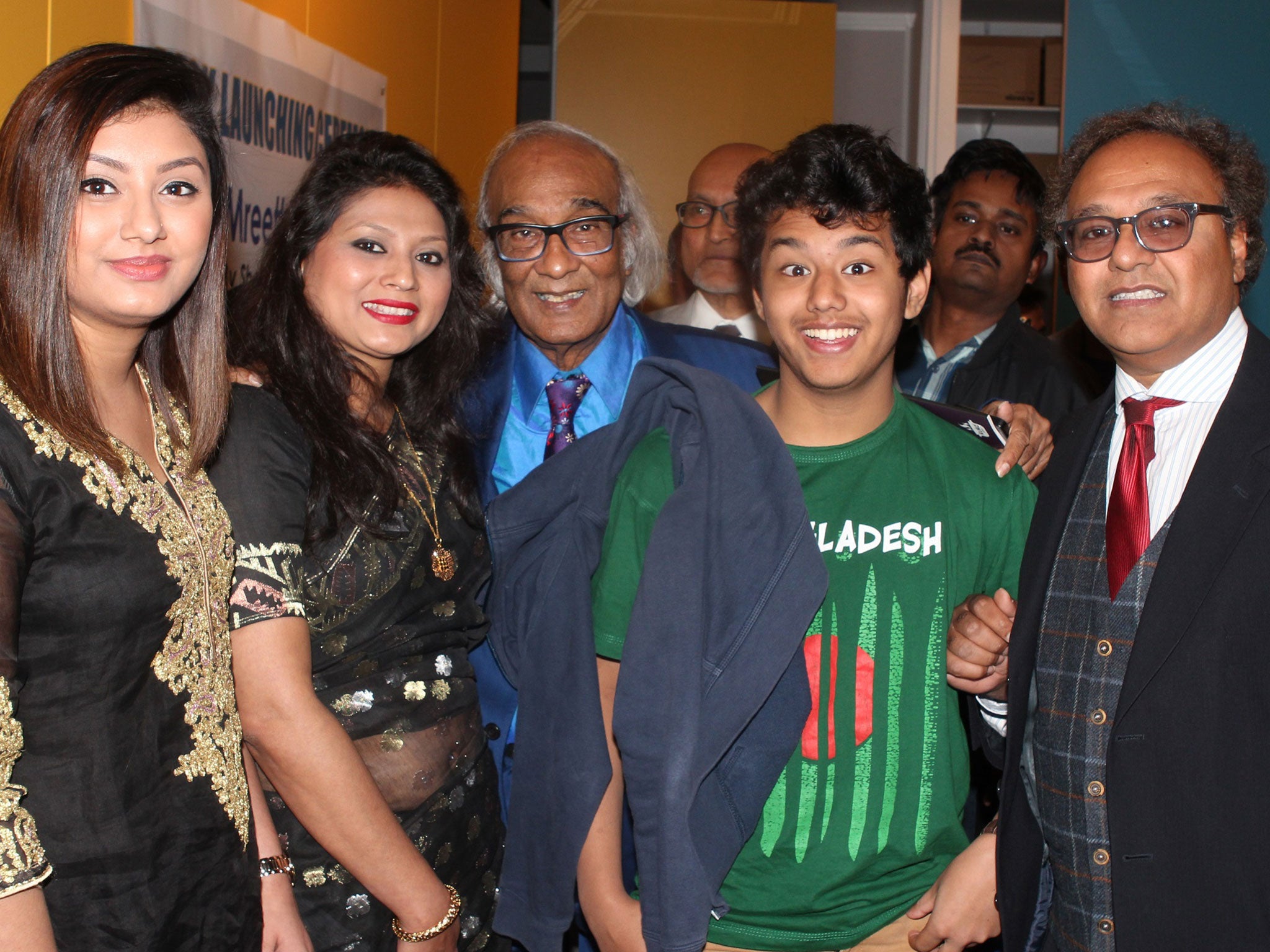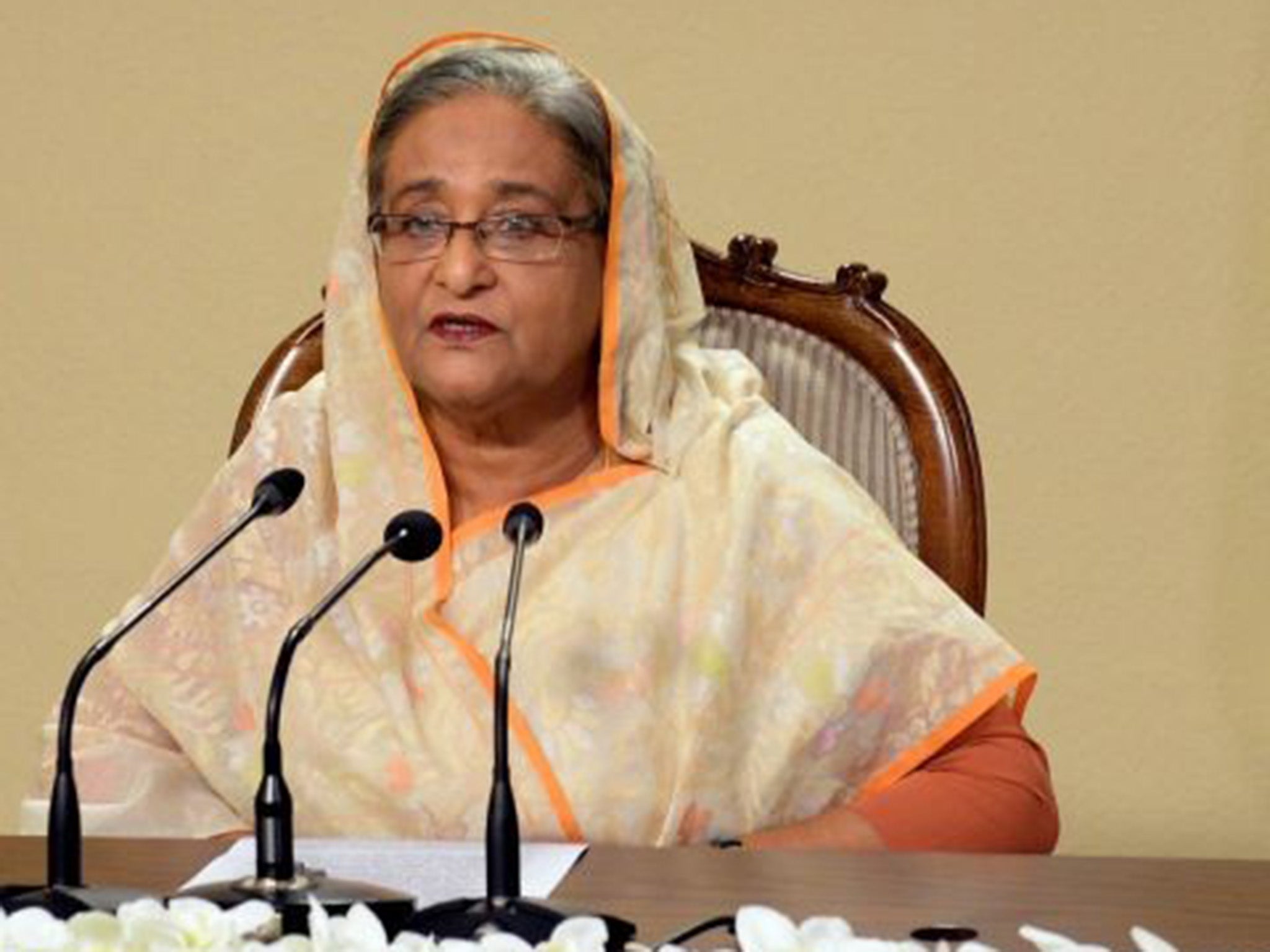Shafik Rehman: Part-UK-funded Bangladesh police force holding elderly British journalist without trial, charity says
Editor of Mouchake Dhil magazine has been held without charge in prison since April despite having diabetes and a heart condition

Your support helps us to tell the story
From reproductive rights to climate change to Big Tech, The Independent is on the ground when the story is developing. Whether it's investigating the financials of Elon Musk's pro-Trump PAC or producing our latest documentary, 'The A Word', which shines a light on the American women fighting for reproductive rights, we know how important it is to parse out the facts from the messaging.
At such a critical moment in US history, we need reporters on the ground. Your donation allows us to keep sending journalists to speak to both sides of the story.
The Independent is trusted by Americans across the entire political spectrum. And unlike many other quality news outlets, we choose not to lock Americans out of our reporting and analysis with paywalls. We believe quality journalism should be available to everyone, paid for by those who can afford it.
Your support makes all the difference.The UK Government has previously fund the police force who have detained an elderly British journalist without charge in Bangladesh, a charity has claimed.
Dual British-Bangladeshi citizen Shafik Rehman, 81, was arrested on 16 April after being accused of plotting to kidnap and kill the prime minister’s son.
The editor of Bangladeshi magazine Mouchake Dhil, who is diabetic and has a stent in his artery, has been held without charge ever since and his family claimed in May that he had been held in solitary confinement and denied medical care while in prison.
Since his arrest the police have missed multiple deadlines to present evidence to the court, and he was briefly hospitalised.
His son, Shumit Rehman, told The Independent that he has since been moved to a better part of the prison, is allowed food from home and has been promised a bail hearing at the end of August - but the family is “not holding their breath”.
Mr Rehman is the third pro-opposition journalist to have been arrested in the country since 2013 as it continues to crack down on free speech.
Reprieve said Mr Rehman, who lives in the UK six months a year, was arrested when officers from Bangladesh’s Detective Branch entered his Bangladesh home without a warrant while posing as film crew.
He has been accused of sedition, a crime which carries the death penalty.
Now it has emerged that the UK’s own Department for International Development (Dfid) contributed £10m to a five-year UN scheme to train the Bangladesh police, according to legal charity Reprieve.
A spokeswoman for Dfid told The Independent said it the money was used for a programme to improve the way police used evidence to investigate crimes involving the poor - especially women and girls - and there was no evidence it was used improperly.
She added that they had stopped funding the programme at the end of 2015 - just four months before Mr Rehman’s arrest.
She said: “No Dfid money is going to the Bangladesh Police and it is wrong to suggest that Dfid funding contributes to human rights violations.
“The UK Government is committed to protecting human rights and holding to account those responsible for the worst violations and abuses.”
But Reprieve said Dfid had admitted last year that it had “concerns about the Police’s lack of operational independence from the government in power”.
Maya Foa, director of Reprieve’s death penalty team, said: “Britain must demand answers from Bangladesh about whether UK aid has contributed in any way to the arrest of journalists like Shafik Rehman.
“Months on from Mr Rehman’s arrest, the Detective Branch has failed to make any case against him – meanwhile, his family in Britain are desperately worried that he could face the death penalty if charged, or that his health will fail in detention.”

The ruling government under Prime Minister Sheikh Hasina has come under increasing pressure as Islamist terror groups step up the number of attacks on the country - and its secular bloggers in particular.
An Isis siege at a Dhaka cafe killed at least 22 people earlier this month and one of the survivors, a British-Bangladeshi man called Hasnat Karim, was also arrested and imprisoned without charge shortly after the ordeal.
In 2015, there were a spate of brutal murders of secular bloggers by Islamist extremists who appeared to go unpunished despite secularism being enshrined in the Bangladeshi constitution.
Join our commenting forum
Join thought-provoking conversations, follow other Independent readers and see their replies
Comments